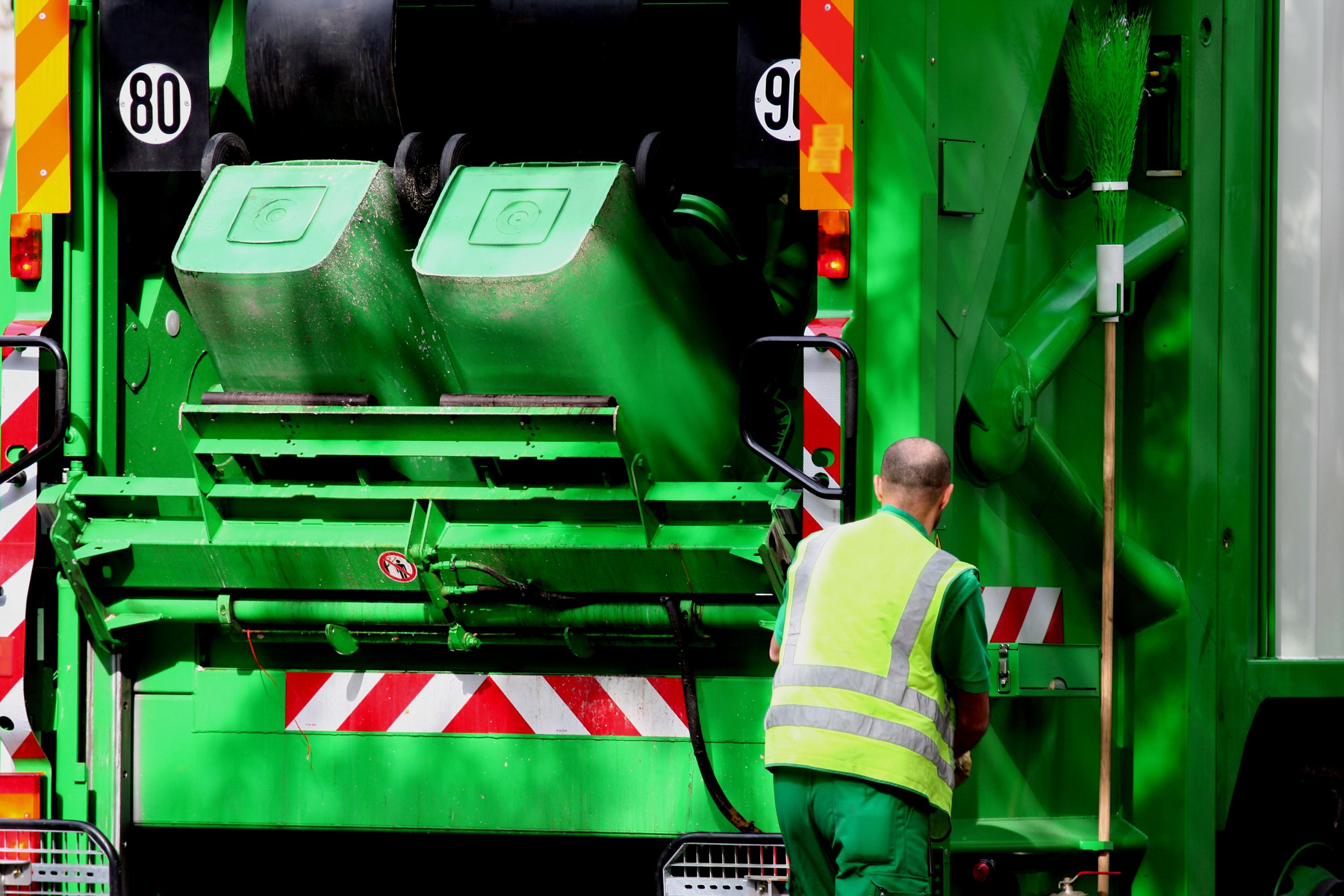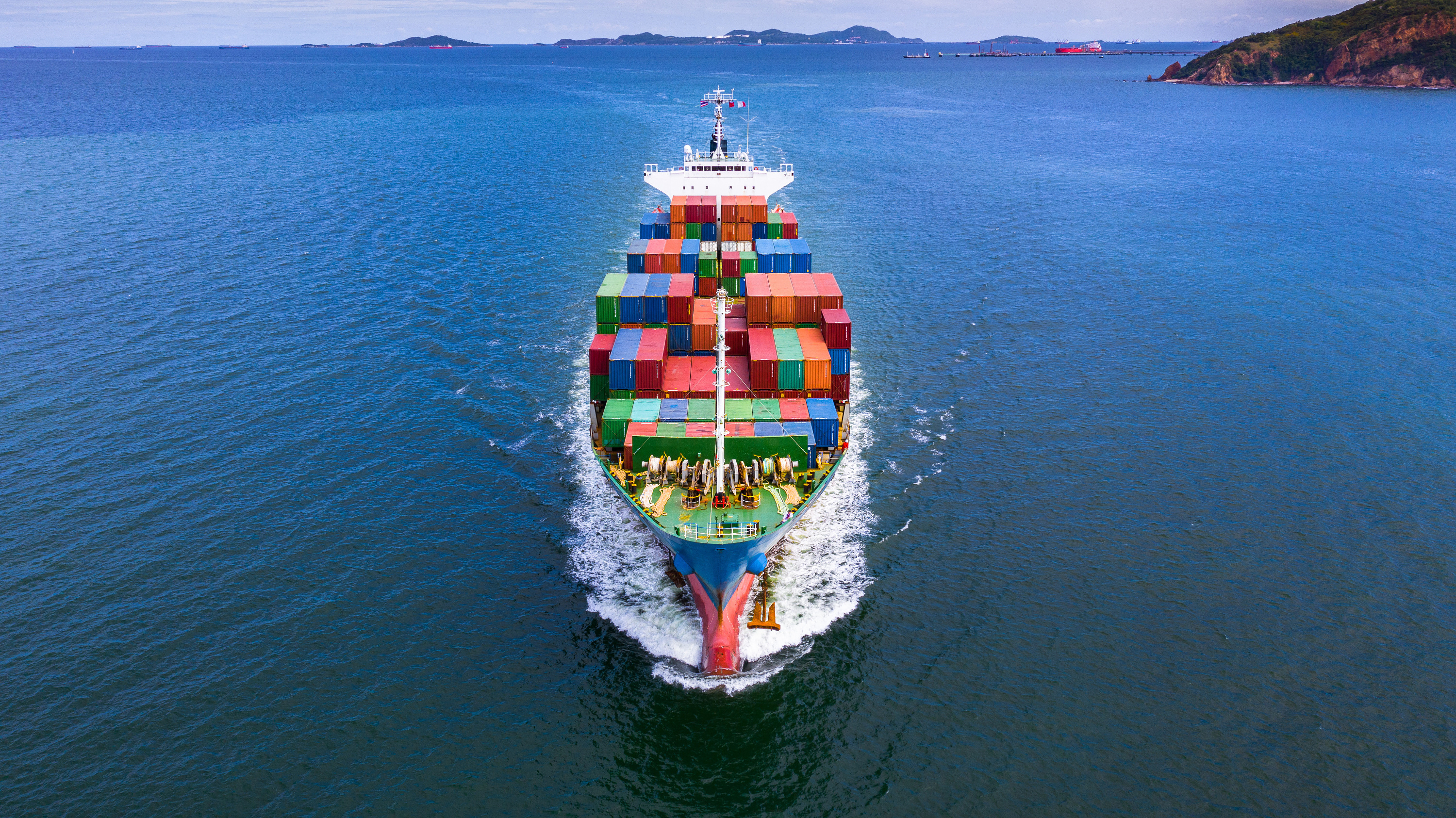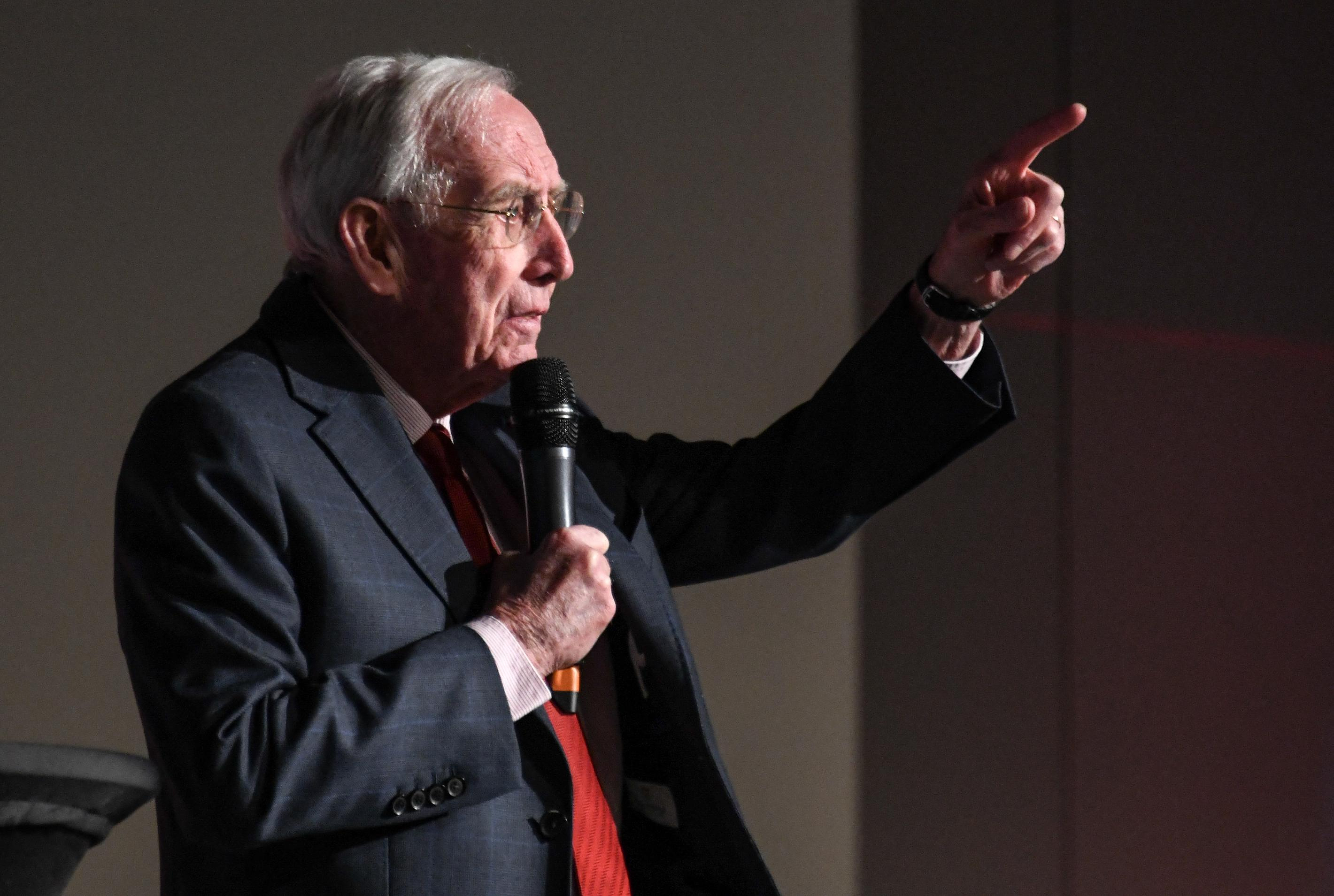Walk-in children are now part of the standard program at football games, at least in the higher leagues. The kids who march onto the pitch with the pros before the game starts are usually between five and eleven years old and no taller than 1.50 metres. Except recently with the third division soccer team TSV 1860 Munich. In the championship game against FSV Zwickau at the end of January, instead of children, the players had full-grown truck drivers on hand as escorts who wore no jerseys, but black pullovers with the inscription “driver wanted”.
With the campaign, the commercial vehicle manufacturer MAN Truck
The Federal Association of German Waste Management, Water and Recycling Management (BDE), for example, warns of an emergency among garbage truck drivers. "A supply collapse can no longer be ruled out," says BDE President Peter Kurth in the WELT interview. In extreme cases, tours would have to be thinned out in the future and pick-up intervals for garbage cans extended.
The Federal Association of German Bus Companies (bdo), on the other hand, reports 7,700 vacancies at its member companies, so many that orders have to be rejected in rows, be they tourist bus trips, school trips, day trips and increasingly also scheduled services in local public transport. And the additional demand due to the planned 49-euro Germany ticket will soon be added, as CEO Christiane Leonard emphasizes. The same applies to the necessary rail replacement services for the extensive rail renovation measures planned for the coming years. "Traffic turnaround and Germany ticket are becoming a utopia."
BDE and bdo, together with the BGL and the Bundesverband Spedition und Logistik (DSLV), are now turning to politicians for help. “There are already a lot of driver recruitment campaigns. In the end, however, we all keep stumbling over bureaucracy,” criticizes Leonard. The four associations have therefore recently drawn up a position paper and contacted the Federal Ministry for Digital Affairs and Transport with it.
In it, the industry organizations are promoting a fundamental reform of professional driver training with, among other things, obtaining a driver's license in additional foreign languages, the adjustment of the minimum age regulation, the integration of the professional driver qualification that is additionally required in Germany into driver training or even an unbureaucratic recognition of foreign driver's licenses. “Because one thing is clear: we need immigration. However, qualifications from third countries are often not recognised,” reports bdo boss Leonard.
In a letter to the Parliamentary State Secretary Oliver Luksic (FDP), the four associations also call for a round table at federal level with the federal government, the states and the industries involved. "Although the associations involved have already presented the seriousness of the situation and concrete proposals for a solution in two hearings of the Transport Committee of the German Bundestag on the shortage of driving personnel since May 2022, no drafts for a necessary reform have been submitted to us to date," the letter says WORLD is available.
In any case, the FDP-led ministry seems only marginally interested in the topic. At least that is what an exchange of letters between BDE and Minister Volker Wissing suggests. In mid-June 2022, following a joint dinner with Wissing, the waste disposal association outlined proposals for solving the driver shortage problem in a two-page letter and asked for an "in-depth discussion" either with the minister or the responsible officials in his house. It then took Wissing five months to reply. One of the statements: The problem is known and there is now a cross-departmental working group.
BDE President Kurth is upset about the delayed feedback. "Apparently politicians lack any understanding of this problem, which is becoming more serious every day. We are running out of time.” And the damage to the economy is increasing and increasing, as various studies regularly show. Several university professors from Germany and Switzerland, in cooperation with five industry associations and 16 companies, have just presented a consortium study that lists a comprehensive description of the situation along with specific recommendations.
The data from the analysis of "capacity bottlenecks in road freight transport" are worrying. After that, around 70,000 drivers are currently missing. And in 2022, according to the survey, this shortage triggered around ten billion euros in additional costs for the economy. And it's likely to get even more expensive in the foreseeable future. Because according to the calculations, the number of missing drivers will increase by around 20,000 per year in the future.
One reason for this is the high average age in the profession: around 30,000 drivers retired in 2022, but at the same time only 17,000 young people entered the profession. "Relatively speaking, this deficiency is greater than in nursing or parenting," the authors write.
The study sees the main reasons for the driver shortage in the often difficult working conditions, in the work environment and in the public image of the driver's profession. There are complaints about the long, unattractive and difficult to plan working hours. Anyone who works in long-distance transport can usually be found on the freeway and away from home at the weekends. Often enough, truckers also have to wait for hours at the unloading points or do some of the unloading themselves. There are rarely adequate opportunities to use sanitary facilities or to take a break on customers' commercial premises. And the tone in which they are spoken to repeatedly suggests that the driver's profession is generally underestimated.
In order to improve the situation, the authors essentially propose expanding parking spaces, especially on the motorways, and equipping them in a modern way. The companies themselves can also appoint and appoint persons responsible for the concerns of drivers. In addition, digital platforms could be used more to optimize routes, shorten routes or make better use of truck loading areas. Because empty runs are a central problem in the industry. According to statistics from the Federal Motor Transport Authority, every third truck journey is a tour without freight. In order to improve this, however, according to the findings of the study, logistics companies would have to be willing to cooperate with competitors and allow transparency in their shipments.
The scientists behind the study, on the other hand, expect little help against the driver shortage from another topic: "In the medium term, little relief can be expected from autonomous driving," they write. This also and especially applies to the waste disposal industry, as BDE President Kurth notes: "We cannot rely on autonomous driving and thus substitute personnel. Because our vehicles have to be in every region and in many corners of cities and communities. In addition, the garbage cans also have to be moved.” And the demand will even increase. “We want and must expand the circular economy in Germany. But that means more collections, also from households.” This means that the need for drivers is increasing even more in this industry.
At the same time, there will be a number of departures in the coming years. Especially since the proportion of the 55+ age group is significantly higher than that of the employed as a whole, at least among professional drivers in freight transport. This is shown by figures from the Federal Statistical Office. According to this, around 480,000 people worked as truck drivers in Germany in 2021. And 36 percent of them were at least 55 years old.
By way of comparison, the corresponding proportion for the total number of employed persons is 25 percent. Conversely, only three percent of employees in this occupational field are newcomers under the age of 25, and this figure is ten percent in the overall economy.
Federal Minister Wissing shares the blame with the industry involved. "First and foremost, the industries themselves are asked to improve the working conditions and the image of the driver's profession," says his letter to the BDE. There is still a need for action, especially in the logistics sector. Those accused, however, deny this allegation. "We pay more than the tariff structures provide," says the bus association, for example. And the waste disposal companies also refer to payments above the collective agreement in order to find staff. "There are even companies that build apartments on their premises to house drivers because life in many cities has become so expensive," reports Kurth.
"Everything on shares" is the daily stock exchange shot from the WELT business editorial team. Every morning from 5 a.m. with the financial journalists from WELT. For stock market experts and beginners. Subscribe to the podcast on Spotify, Apple Podcast, Amazon Music and Deezer. Or directly via RSS feed.

 Poland, big winner of European enlargement
Poland, big winner of European enlargement In Israel, step-by-step negotiations for a ceasefire in the Gaza Strip
In Israel, step-by-step negotiations for a ceasefire in the Gaza Strip BBVA ADRs fall almost 2% on Wall Street
BBVA ADRs fall almost 2% on Wall Street Ukraine has lost 10 million inhabitants since 2001... and could lose as many by 2050
Ukraine has lost 10 million inhabitants since 2001... and could lose as many by 2050 Sánchez cancels his agenda and considers resigning: "I need to stop and reflect"
Sánchez cancels his agenda and considers resigning: "I need to stop and reflect" The Federal Committee of the PSOE interrupts the event to take to the streets with the militants
The Federal Committee of the PSOE interrupts the event to take to the streets with the militants Repsol: "We want to lead generative AI to guarantee its benefits and avoid risks"
Repsol: "We want to lead generative AI to guarantee its benefits and avoid risks" Osteoarthritis: an innovation to improve its management
Osteoarthritis: an innovation to improve its management The Fed maintains its rates in the face of “lack of progress” on the inflation front
The Fed maintains its rates in the face of “lack of progress” on the inflation front Microsoft announces investment of 2.05 billion euros in AI and cloud in Malaysia
Microsoft announces investment of 2.05 billion euros in AI and cloud in Malaysia Ukraine gets a spokesperson generated by artificial intelligence
Ukraine gets a spokesperson generated by artificial intelligence The French will take advantage of the May bridges to explore France
The French will take advantage of the May bridges to explore France Actor Laurent Lafitte leaves the Comédie-Française
Actor Laurent Lafitte leaves the Comédie-Française Death of Paul Auster: Actes Sud says he is “lucky” to have been his publisher in France
Death of Paul Auster: Actes Sud says he is “lucky” to have been his publisher in France Lang Lang, the most French of Chinese pianists
Lang Lang, the most French of Chinese pianists Author of the “New York Trilogy”, American novelist Paul Auster has died at the age of 77
Author of the “New York Trilogy”, American novelist Paul Auster has died at the age of 77 Omoda 7, another Chinese car that could be manufactured in Spain
Omoda 7, another Chinese car that could be manufactured in Spain BYD chooses CA Auto Bank as financial partner in Spain
BYD chooses CA Auto Bank as financial partner in Spain Tesla and Baidu sign key agreement to boost development of autonomous driving
Tesla and Baidu sign key agreement to boost development of autonomous driving Skoda Kodiaq 2024: a 'beast' plug-in hybrid SUV
Skoda Kodiaq 2024: a 'beast' plug-in hybrid SUV The home mortgage firm rises 3.8% in February and the average interest moderates to 3.33%
The home mortgage firm rises 3.8% in February and the average interest moderates to 3.33% This is how housing prices have changed in Spain in the last decade
This is how housing prices have changed in Spain in the last decade The home mortgage firm drops 10% in January and interest soars to 3.46%
The home mortgage firm drops 10% in January and interest soars to 3.46% The jewel of the Rocío de Nagüeles urbanization: a dream villa in Marbella
The jewel of the Rocío de Nagüeles urbanization: a dream villa in Marbella Europeans: a senior official on the National Rally list
Europeans: a senior official on the National Rally list Blockade of Sciences Po: the right denounces a “drift”, the government charges the rebels
Blockade of Sciences Po: the right denounces a “drift”, the government charges the rebels Even on a mission for NATO, the Charles-de-Gaulle remains under French control, Lecornu responds to Mélenchon
Even on a mission for NATO, the Charles-de-Gaulle remains under French control, Lecornu responds to Mélenchon “Deadly Europe”, “economic decline”, immigration… What to remember from Emmanuel Macron’s speech at the Sorbonne
“Deadly Europe”, “economic decline”, immigration… What to remember from Emmanuel Macron’s speech at the Sorbonne These French cities that will boycott the World Cup in Qatar
These French cities that will boycott the World Cup in Qatar NBA: Boston will see the semi-finals, the Clippers one step away from elimination
NBA: Boston will see the semi-finals, the Clippers one step away from elimination Paris 2024 Olympic Games: “It would have been an incredible honor”, Rudy Gobert will ultimately not be flag bearer
Paris 2024 Olympic Games: “It would have been an incredible honor”, Rudy Gobert will ultimately not be flag bearer Champions League: Dortmund coach praises Jadon Sancho, author of a great performance against PSG
Champions League: Dortmund coach praises Jadon Sancho, author of a great performance against PSG Football: a goal from Georges Mikautadze broadcast...in Times Square
Football: a goal from Georges Mikautadze broadcast...in Times Square


















